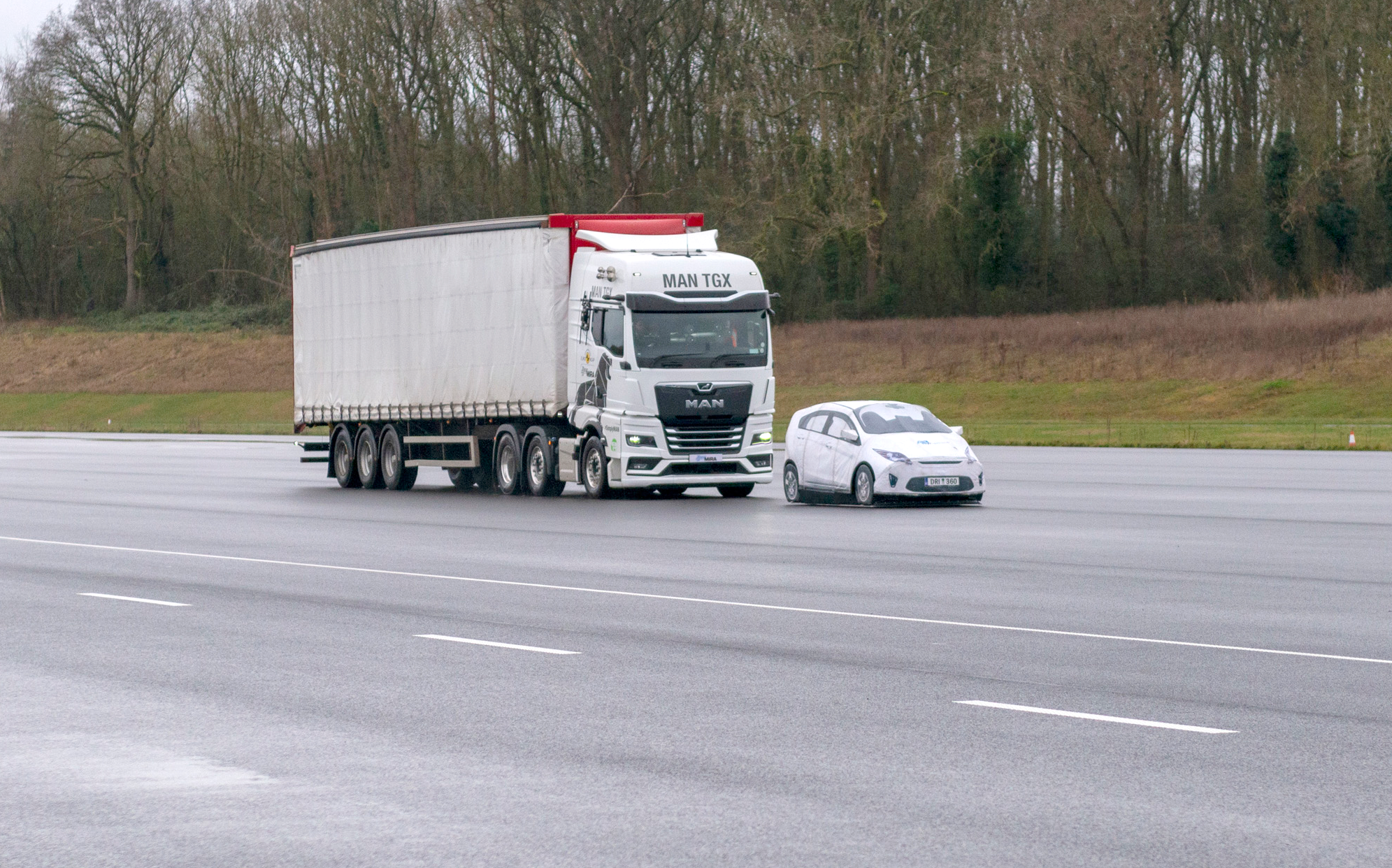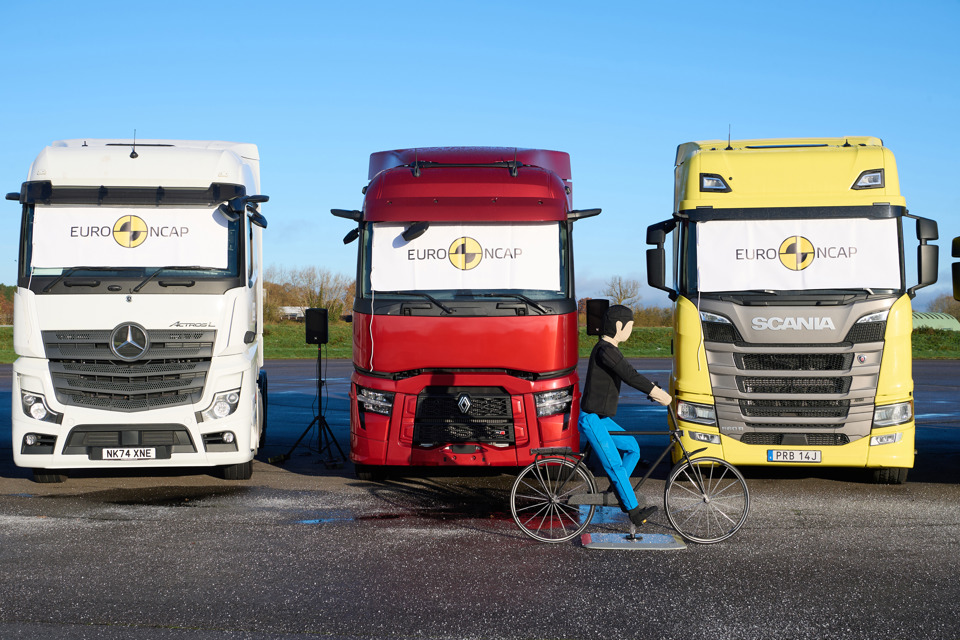Volvo has emerged as the clear winner as Euro NCAP turns its attention to truck safety for the first time. Its FH Aero and FM have both garnered a maximum five-star Truck Safe rating.
Iveco’s S-Way only won one star, making it the weakest performer among the nine tractor units tested.
The majority of new trucks sold in the UK comply with Europe’s General Safety Regulation (GSR2), which mandates a wide variety of safety systems.
Euro NCAP argues, however, that additional measures are essential given that trucks represent under 1.5% of vehicles on Europe’s roads but are involved in nearly 15% of all road fatalities.
The Euro NCAP testing regime looks at three aspects of a vehicle.
Safe Driving considers how good the driver’s direct and indirect vision is, whether a driver monitoring system is in place, and whether drivers are reminded to put their seatbelts on.
Crash Avoidance reviews how effective the truck’s ADAS (Advanced Driver Assistance System) is when it comes to helping drivers avoid frontal, lane change, and low-speed manoeuvring collisions.
Post Crash examines how easy it is to extract casualties from the cab in the aftermath of a smash.
A percentage score is awarded for performance at each stage, and the scores are collated to determine an overall rating out of five stars. The trucks were evaluated at Euro NCAP-accredited testing facilities around Europe.
Euro NCAP has also introduced a CitySafe accreditation for trucks with technologies or design features that can help to prevent collisions in city centres.
Volvo’s FH Aero and FM were both tagged as being CitySafe, with Safe Driving scores of 80% and 87% respectively. Collision Avoidance and Rescue percentages were the same in both cases, at 89% and 80%.
Every truck assessed achieved an 80% rescue percentage.
Volvo’s sister brand Renault’s T was accorded four stars, thanks largely to what the assessors described as its high-quality ADAS. Safe Driving was at 72% and Collision Avoidance at 70%. It was not given a CitySafe rating.
Scania’s G-series was viewed as CitySafe however and won a four-star rating, with Safe Driving at 71% and Collision Avoidance at 62%.
Scania’s R-series dropped down to three stars, and was not granted a CitySafe badge.
Safe Driving and Collision Avoidance percentages were 64% and 62% respectively,
DAF’s XF received three stars too along with the CitySafe accolade. Safe Driving was at 85% and Collision Avoidance at 35%.
None of the remaining three trucks assessed was viewed as CitySafe.

While all the foregoing brands provided trucks for assessment, Daimler Truck, MAN and Iveco declined to do so.
That being the case, Euro NCAP felt it had no choice but to secure vehicles from elsewhere.
The Mercedes-Benz Actros L assessed received three stars. Euro NCAP said: “We tested and rated the most recent, well-specified vehicle obtainable – a vehicle first registered in July 2024. The manufacturer informs us that it is not representative of the safety performance of their latest generation, which only became available later in 2024.”
Safe Driving was assessed at 72% and Collision Avoidance at 51%.
MAN’s TGX was a three-star performer, with Safe Driving at 56% and Collision Avoidance at 60%.
The assessors said: “Euro NCAP was able to source, test and rate the latest GSR2 compliant model equipped with all the relevant safety options.”
The Iveco S-Way’s Safe Driving and Collision Avoidance ratings were a disappointing 32% and 19%.
“Euro NCAP tested and rated the most recent, well-specified, vehicle available,” it said. “The manufacturer informs us that it is not representative of the safety performance of their latest generation vehicle that complies with GSR2 regulations, but first deliveries of these were not expected until later in 2024.”
The next batch of Truck Safe results will spotlight rigids used on long-haul work, and will be released next April. The urban distribution sector will come under scrutiny next, with results scheduled to be unveiled in October.
Passive safety – collision protection – will be added by 2030 to address the problem of truck-to-car crashes.


















Login to comment
Comments
No comments have been made yet.